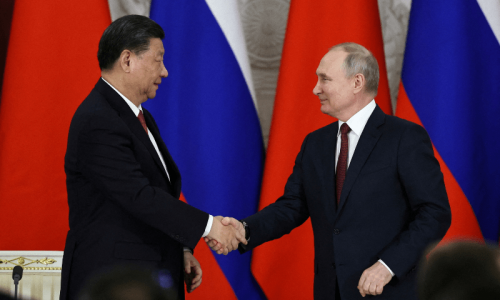LONDON: Let us be clear: there may be intellectuals in Britain, but there are no British intellectuals — for all Timothy Garton Ash’s protestations on The Guardian pages. The concept emerged from the Dreyfus affair; J’Accuse, Emile Zola’s letter to the French president published in L’Aurore on January 13, 1898, chiselled the notion once and for all. Writers and artists now understood it was their duty to question the established order. They were not part of an intelligentsia or elite per se, but for the sake of objectivity they remained a part.
Intellectuals, born in every milieu, are society’s conscience. They don’t belong to a particular class. They can only flourish in an environment in which the pursuit of ideas, public debate and cultural matters is paramount, a world in which the school gives citizens the tools, curiosity and taste to engage in the Cité’s debate without any inhibitions. In that world, all citizens are potential intellectuals, only of different calibre.
In Britain, this notion triggers sneers. People feel they must apologise if they want to say something intelligent. When foreign journalists like me look for intellectuals to comment on an event or sociocultural trend, to offer a synthesis and bridge domains of knowledge, we hit a wall. All we find are self-confessed specialists, reluctant to engage in a larger debate and, above all, averse to dissent. These specialists are more like accountants than intellectuals.
But there are intellectuals in Britain. They get honours everywhere but their home country. The French exulted when Harold Pinter received the Nobel; Tony Blair didn’t even grab his phone to offer congratulations — perhaps precisely because Pinter is an intellectual, who speaks the truth and never bows.
You will recognise these intellectuals easily; like Pinter, they never apologise before opening their mouth, they are not afraid of abstraction, they don’t refuse to dissent and, lastly, they don’t naively think that all intellectuals speak one language: namely, English.
To say, for instance, Paris hasn’t bred any worthy intellectuals since Camus and that Bernard-Henri Levy epitomises the intellectual poseur is at best terribly short-sighted, at worst profoundly ill-informed. Why? Because since Sartre’s time, a pernicious revolution has transformed Anglophone publishing. Think Europe has no more intellectuals simply because you can’t find their books? Think again. Guess how many books in British bookshops are translations? Just three per cent — meaning the bulk of the world’s intellectual output never gets read or discussed in Britain. If Camus, Borges, Calvino, Bourdieu, Foucault, Grass and Havel were young intellectuals today, they would not get translated into English. And if you’ve had enough of Levy (besides the fact that he is too handsome to be true), it’s only because he is one of the few French intellectuals alive available in an English edition. One tires of always eating the same fruit.
The rampant imperialism of the English language contributes to the building of an ivory tower invisible to its inhabitants. They are so convinced that no serious thoughts can be conceived outside their culture they deem it unnecessary to learn other languages. In Britain, only a quarter of state schools make modern languages compulsory at GCSE level. A generation of linguists is about to be lost and with it the country’s capacity to understand a different world. University language departments will close, the Foreign Office will find itself short of competent staff and British academics will declare themselves the last true intellectuals, in blind ignorance.
In France, by contrast, 25 per cent of books are translations. On the Left Bank, the window on to the world is wide open; on the South Bank it has almost closed.—Dawn/The Guardian News Service
—Agnès Catherine Poirier is a journalist on the French daily newspaper Libération











































Dear visitor, the comments section is undergoing an overhaul and will return soon.